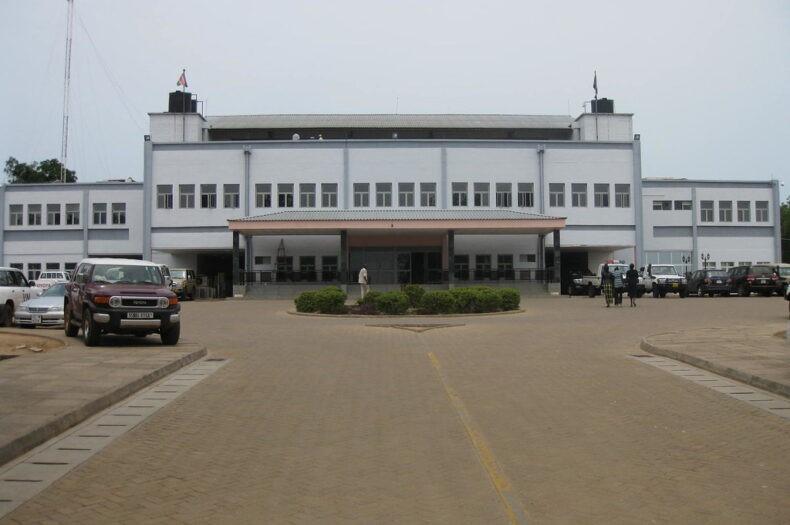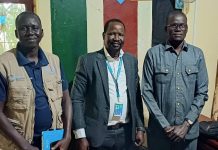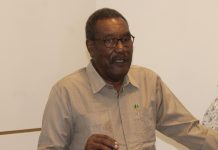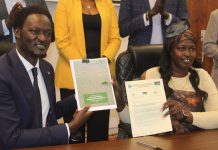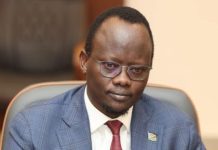Africa-Press – South-Sudan. Business in the Transitional National Legislative Assembly (TNLA) was thrown into disarray as the vast majority of opposition political party members boycotted a meeting on Wednesday.
The MPs cited improper leadership procedures in the assembly after the speaker travelled to Uganda for an official function.
Only 185 MPs out of 550 attended the sitting; the majority of them from the SPLM Party with the rest from the other political parties. The MPs debated the wildlife bill meant to regulate the sector.
Also, the majority of chairpersons and deputies of Specialised Communities, as well as two deputy speakers and Chief Whips, were absent from that sitting. The session was moderated by the second deputy speaker without providing any explanation why the rest were not in the house.
Five of the 10 MPs who contributed to the debate on the bill were from the SPLM, OPP (1), and SSOA (3). There was no one from the SPLM-IO.
Bol Joseph Agau, who represents the National Democratic Movement Party, termed the boycott by members as “wrong parliamentary leadership.”
“In the absence of the speaker (Jemma Nunu Kumba), the first deputy speaker, who is from SPLM-IO according to R-ARCSS, the agreement that is holding the country, should act. The first deputy speaker was available, but we got information that the speaker called from Kampala and bypassed the first deputy speaker because they had quarrelled over the issues happening in the parliament, and instead the speaker chose the deputy speaker of SPLM to chair the sitting, ” he claimed.
“Even if the pure 332 of SPLM and the other parties are not there, that means that the sitting does not have a quorum.”
Another SPLA-IO member, Joseph Malual Dong, stated that the SPLM-IO did not attend the Wednesday session due to a variety of concerns that, in his opinion, should have been settled first before any legislation or discussion of subjects of interest to the parliament.
Malual pointed out that the speaker left for Uganda without informing the first deputy speaker, resulting in a void in the leadership of the assembly’s administration, as well as an issue with NCAC – the body charged with drafting laws that pass through the ministry of justice and legal affairs, the cabinet, and then the parliament for ratification.
“There was misinterpretation of some of those laws,” Malual said, “particularly the NCAC’s presentation that for people to register political parties, the number required should be 300, at least two-thirds of the states,” which he claimed was violated by the committee on legislation and justice, which drafted the final bill and amended it to 500, arguing that it was already there in the political party’s act 2012.”
He stated that the SPLM-IO would not attend any meetings until those issues are rectified, and that they have written to NCAC requesting that they investigate the amendment to see if it is justified. He made the point that As IO we will not allow anybody to tamper with the agreement.”
According to the assembly’s conduct of business regulation, one-third of the members must be present for a sitting to proceed. In the instance of the TNLA, if 180 of the 550 members are present, the meeting will continue.
The lawmakers that boycotted the sitting agreed with Parmena Awerial Aluong, the second deputy speaker in charge of finance and administration, on the process of the parliament when the speaker is absent.
In an interview with The City Review, he explained that when the speaker is absent, the first deputy speaker acts, in the absence of the first deputy speaker, the second deputy speaker acts, in the absence of both the speaker and the two deputies, the third deputy acts, and in the event that all of them are absent, a chair of the specialized committee is chosen to moderate the meeting.
“This is the normal procedure of the parliament. Nobody owns it. This is mine, the speaker doesn’t own it, the first deputy does not own it, I do not own it and the third. It is the work of parliament to direct. When all of us are not there, a chairperson can act,” said Awerial, the second deputy speaker of TNLA.
For More News And Analysis About South-Sudan Follow Africa-Press

